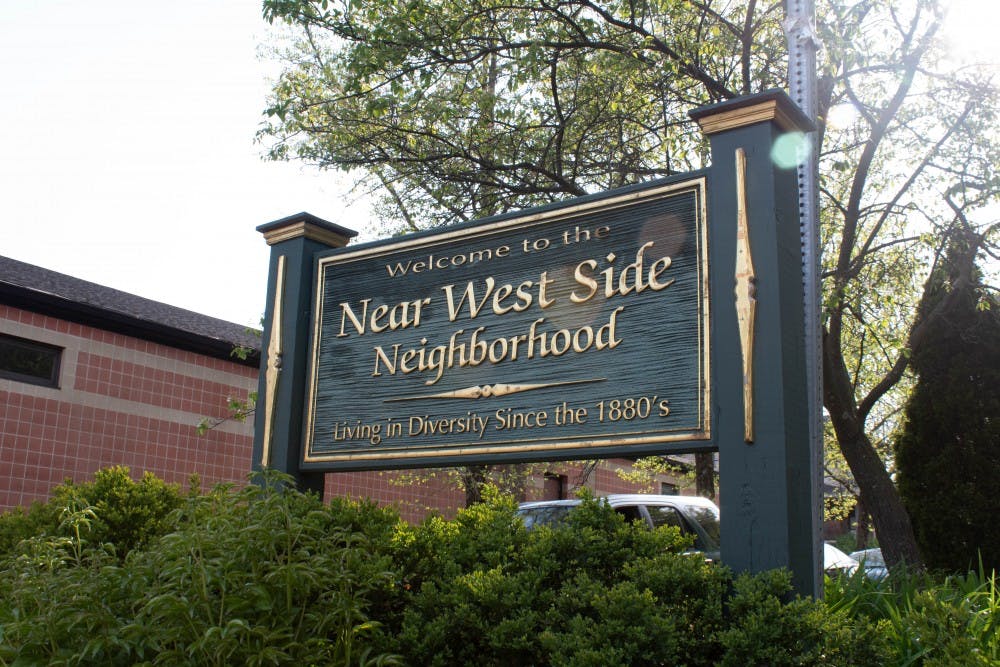Peter Dorfman lives in the Near West Side neighborhood. He owns and lives in a small single-family home surrounded by other small single-family homes.
But when Dorfman read the proposed updates to the Unified Development Ordinance, a document that regulates zoning and other aspects of city planning, he began to worry about his quaint neighborhood.
City residents like Dorfman are worried that the proposed zoning rules — which would allow varying sizes of multiplexes in neighborhoods throughout Bloomington — will create crowding in neighborhoods, expensive rental housing and more students in residential neighborhoods.
Dorfman said crowding was one of his main concerns. Space for driving and parking in his neighborhood is tight already.
“The thing about this neighborhood is that the street grid was made over 100 years ago,” Dorfman said. “You can’t drive two abreast.”
District 1 council member Chris Sturbaum and other council members made speeches at last week’s city council meeting about the threat the UDO changes would make to single-family housing. More than 10 residents also used the public comment period to speak against the zoning changes.
“In any other town, changing single-family zoning would be front page news,” Sturbaum said in an interview.
Sturbaum said he’s seen the transformation of core neighborhoods from their decaying state in the 1980s to the thriving neighborhoods they are now. He said he believes single-family zoning, which was implemented in the 80s, led to more homeownership, stabilization of core neighborhoods and a promise to buyers that they would have other single-family houses all around them.
“I know deeply what that zoning meant in the first place,” Sturbaum said.
Some say Sturbaum has a conflict of interest on the topic of preserving single-family homes because he has a construction and renovating company that specializes in older houses. Sturbaum doesn't agree.
"I would get plenty of jobs turning these into duplexes," Sturbaum said. "There is so much work out there. This is not about work."
Much of the core neighborhoods’ proposed zoning says property owners would not have to consult neighbors before building a duplex. However, triplexes and fourplexes would have would have to be proven not to be a detriment to the neighborhood before being built. Across town, allowance of multiplexes varies.
Some residents, like council candidate Vauhxx Booker, said they are not completely against the zoning changes. Booker said density is necessary and re-zoning can work with some regulation.
He said he wants to see the UDO require new multiplexes to be owner-occupied or owned by small, local developers.
“I want to make sure no neighborhood goes through radical change,” Booker said. “The density should be spread throughout the city.”
Booker, who is also a member of the Monroe County Affordable Housing Advisory Commission and a renter himself, said mixing single-family houses and duplexes would create more equitable, inclusive neighborhoods.
“We need to be creating housing for all levels of income,” Booker said.
But Sturbaum and Dorfman, who said they also want the city to have more affordable housing, aren’t convinced allowing multiplex housing would be affordable because owners would most likely not rent out their properties for cheap.
Sturbaum said the current UDO changes go against the city’s Comprehensive Plan, which says housing for working class people should be built on the edges of neighborhoods and undeveloped areas along commonly used streets.
He said he also thinks the IU Health Bloomington hospital site, which the city bought for redevelopment, will be an ideal place for dense, affordable housing because people can be close to downtown.
“We want them to be close and we want them to ride a bike,” Sturbaum said. “But don’t tear up single-family housing to do it.”
The public comment form for the current UDO draft closes April 30. The final draft will be presented this summer to the Plan Commission and city council.




